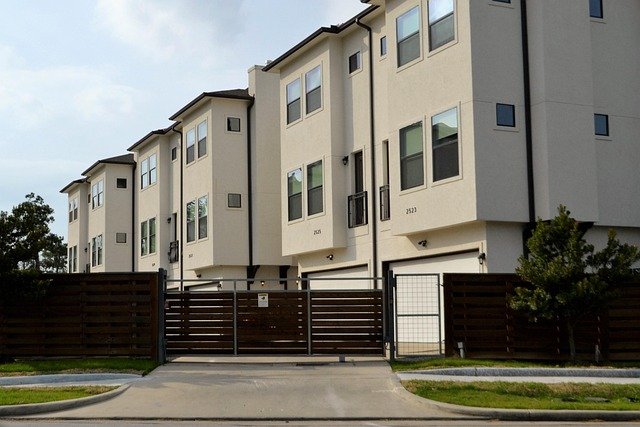A Comprehensive Guide to Apartment Complexes for Seniors
Navigating housing options in retirement can be overwhelming, especially when seeking a community that balances independence with amenities tailored to seniors' needs. Apartment complexes for seniors offer specialized living environments designed with older adults in mind, featuring accessibility modifications, community activities, and various levels of support services. These residential communities cater specifically to adults typically aged 55 and older, providing housing solutions that promote both independence and social connection during retirement years.

Understanding Senior Apartment Complexes
Senior apartment complexes are residential communities designed specifically for older adults, typically those 55 and older. Unlike traditional apartments, these complexes incorporate age-appropriate design features such as single-floor living, grab bars in bathrooms, wider doorways for mobility aids, and emergency call systems. Many offer a maintenance-free lifestyle where tasks like lawn care, snow removal, and exterior upkeep are handled by management. These communities vary widely in size, from intimate buildings with just a few units to large campus-style developments with hundreds of residences and extensive grounds.
Cost and Rent Prices for Senior Apartments
The cost of senior apartment living varies significantly based on location, amenities, and whether the community offers independent living or includes supportive services. In metropolitan areas, monthly rents typically range from $1,000 to $3,500 for independent living units, while suburban and rural locations may offer more affordable options starting around $700 per month. Luxury senior communities in desirable locations can exceed $5,000 monthly. Many communities operate on a month-to-month rental basis, though some require longer lease commitments or entrance fees.
| Type of Senior Apartment | Average Monthly Rent | Typical Included Services |
|---|---|---|
| Affordable/Subsidized | $400-$900 | Basic maintenance, some utilities |
| Market-Rate Independent | $1,200-$3,000 | Maintenance, some utilities, limited activities |
| Premium Independent | $2,500-$5,000+ | Full utilities, meals, activities, transportation |
| Assisted Living Units | $3,500-$6,000 | Above plus personal care assistance |
Prices, rates, or cost estimates mentioned in this article are based on the latest available information but may change over time. Independent research is advised before making financial decisions.
Benefits and How to Apply for Senior Housing
Senior apartment communities offer numerous advantages, including age-appropriate social connections, security features, and accessibility. Many residents report improved quality of life from reduced home maintenance responsibilities and increased social opportunities. Most communities organize regular activities, outings, and educational programs tailored to residents’ interests. For those requiring occasional assistance, some complexes offer optional service packages for meals, housekeeping, or transportation.
The application process typically begins with a tour and meeting with a community representative. Prospective residents then complete an application that may include:
-
Age verification (typically 55+ or 62+ depending on the community)
-
Income qualification (especially for affordable housing options)
-
Background and credit checks
-
Medical assessment (for communities offering care services)
-
References from previous residences
Facilities and Utilities Included in Senior Complexes
Modern senior apartment communities often feature an impressive array of amenities designed to enhance residents’ lifestyle and wellness. Common facilities include fitness centers with senior-appropriate equipment, community rooms for social gatherings, libraries, computer centers, and landscaped outdoor spaces. Many communities also provide beauty/barber shops, guest suites, and dining facilities ranging from cafes to full-service restaurants.
Regarding utilities, inclusion varies widely between communities. Most include water and trash removal in the monthly rent, while policies for electricity, heating/cooling, cable television, and internet service differ. Premium communities typically include most utilities in their higher monthly fees, while affordable options may require residents to arrange and pay for additional services independently. Many communities now offer bundled service packages that can be added to base rent for those seeking comprehensive billing.
Where to Find Apartment Complexes for Seniors
Several resources can help seniors locate appropriate housing communities. The U.S. Department of Housing and Urban Development (HUD) maintains a comprehensive database of subsidized and affordable senior housing options. For market-rate and premium communities, online senior living directories like Caring.com, A Place for Mom, or SeniorLiving.org provide searchable databases with detailed community information and photos.
Local Area Agencies on Aging can provide personalized guidance on housing options within specific regions. These government-funded agencies offer free consultations and maintain updated information about local senior housing communities. Real estate agents specializing in senior transitions can also provide valuable insights about communities that might not advertise widely. Additionally, many senior centers maintain resource guides with information about housing options in their service areas.
Evaluating Which Senior Apartment Is Right for You
Finding the right senior apartment involves assessing your current and anticipated needs. Consider location proximity to family, healthcare providers, and familiar amenities. Review community rules regarding pets, visitors, and parking. Evaluate the social environment by attending community events or speaking with current residents. For those with changing health needs, investigating whether the community offers a continuum of care or partnerships with home health agencies can provide peace of mind for aging in place.
Financial considerations should extend beyond monthly rent to include all potential costs such as meal plans, housekeeping services, transportation fees, and annual rent increases. Many communities offer financial counseling or can direct prospective residents to elder law attorneys who specialize in helping seniors maximize their housing options through benefits like HUD’s Section 202 program or Veterans Affairs supportive housing.
This article is for informational purposes only and should not be considered medical advice. Please consult a qualified healthcare professional for personalized guidance and treatment.




